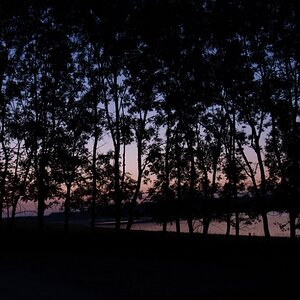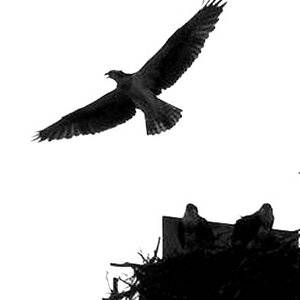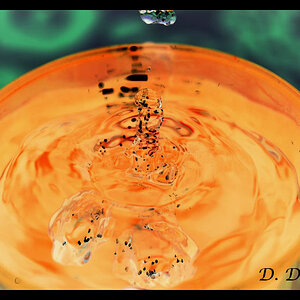without a gray card. I use black background with one tiny little white(at least in my eyes)object, and read the histogram. is this enough? Also, somehow I am unable to render the exactly color in pic as it in the real object, subtle difference though. i tried bracketing. still..
Navigation
Install the app
How to install the app on iOS
Follow along with the video below to see how to install our site as a web app on your home screen.

Note: This feature currently requires accessing the site using the built-in Safari browser.
More options
You are using an out of date browser. It may not display this or other websites correctly.
You should upgrade or use an alternative browser.
You should upgrade or use an alternative browser.
How do you test the accuracy of an light meter?
- Thread starter hahastar
- Start date
just tried. found out i need to dial down 2/3 stop from the meter's reading for a white object to reach the right end of the histogram, and dial up 2/3 stop for a black object to reach the left end. I am confused. And don't know why this is happening.
DocFrankenstein
Clinically Insane?
- Joined
- Apr 29, 2004
- Messages
- 1,646
- Reaction score
- 6
Your meter is fine. You can't test it the way you're trying to.
The best way is to compare it to another calibrated meter.
The best way is to compare it to another calibrated meter.
Torus34
No longer a newbie, moving up!
- Joined
- Jan 26, 2006
- Messages
- 2,117
- Reaction score
- 37
- Location
- Tottenville, Staten Island, NYC USA
- Can others edit my Photos
- Photos OK to edit
Gray cards are cheap as dirt and a worthwhile addition to your heap of photo gear. B&H has some for about $US6/pair. Use one and put the other one away in a dark envelope -- insurance against any fading of the one in use. Given the card and full bright sunlight, the ol' 'Sunny 16' rule [exposure at f16 = 1/ISO] will provide all the check you need.
fmw
No longer a newbie, moving up!
I've never known a photographer to test the accuracy of a light meter. What we do is calibrate them. By that I mean we learn the idosyncracies of the meter and learn how to adjust things based on what it recommends.
Remember, a meter doesn't determine an exposure (or shouldn't), it recommends one. It is up to the photographer to act on that recommendation to produce the desired result.
If one meter recommends a 1/2 stop different exposure than another for the same subject, there could be many reasons for that beyond accuracy. Books have been written about it.
Just get to know your meter and learn how to interpret its recommendations. Accuracy isn't the issue so much as consistency.
Remember, a meter doesn't determine an exposure (or shouldn't), it recommends one. It is up to the photographer to act on that recommendation to produce the desired result.
If one meter recommends a 1/2 stop different exposure than another for the same subject, there could be many reasons for that beyond accuracy. Books have been written about it.
Just get to know your meter and learn how to interpret its recommendations. Accuracy isn't the issue so much as consistency.
W.Smith
TPF Noob!
- Joined
- Oct 11, 2006
- Messages
- 440
- Reaction score
- 0
fmw said:Accuracy isn't the issue so much as consistency.
Thanks for the answer. What do you mean by consistency? If the reading is not consistent(sometimes 1/3 stop up, sometimes 2/3 stop up), then it is also an accuracy issue? No?
fmw
No longer a newbie, moving up!
hahastar said:Thanks for the answer. What do you mean by consistency? If the reading is not consistent(sometimes 1/3 stop up, sometimes 2/3 stop up), then it is also an accuracy issue? No?
Let me give you an example. Compared to reflected meters, incident meters are more consistent. They aren't affected by reflectance. They may have no better accuracy at reading the lumens of light on a subject but they give exposure recommendations that are less prone to error and interpretation because reflectance isn't a factor.
Here's another example. An in-camera reflected light meter might be weighted to give more "attention" to the center of the frame. If the subject you want to expose is not in the center of the frame, you will get a different exposure recommendation than one that is in the center. Which is right? Only experimentation will determine that but it provides a measure of inconsistency that another meter might not.
ladyphotog
TPF Noob!
- Joined
- Oct 4, 2006
- Messages
- 215
- Reaction score
- 0
- Location
- Georgia
- Can others edit my Photos
- Photos OK to edit
fmw said:Let me give you an example. Compared to reflected meters, incident meters are more consistent. They aren't affected by reflectance. They may have no better accuracy at reading the lumens of light on a subject but they give exposure recommendations that are less prone to error and interpretation because reflectance isn't a factor.
Here's another example. An in-camera reflected light meter might be weighted to give more "attention" to the center of the frame. If the subject you want to expose is not in the center of the frame, you will get a different exposure recommendation than one that is in the center. Which is right? Only experimentation will determine that but it provides a measure of inconsistency that another meter might not.
They are both right, they are measuring the light in the center of the scene no matter if that happens to be your main subject or not. Compare and calibrate your meter with another one that is giving the correct exposures.
fmw
No longer a newbie, moving up!
ladyphotog said:They are both right, they are measuring the light in the center of the scene no matter if that happens to be your main subject or not. Compare and calibrate your meter with another one that is giving the correct exposures.
Yes, thanks for that. I should have said that metering your composed shot could well provide a different exposure recommendation than centering the subject and holding the meter reading while you recompose. Now that I read my post it reads like I was answering a trick question that tricked me.
Torus34
No longer a newbie, moving up!
- Joined
- Jan 26, 2006
- Messages
- 2,117
- Reaction score
- 37
- Location
- Tottenville, Staten Island, NYC USA
- Can others edit my Photos
- Photos OK to edit
Definitions:
Accuracy: meter reading agreement with that of an ideal meter.
Precision: repeatability of meter readings under identical conditions.
Deviation: difference between averaged meter reading and the true value.
Accuracy: meter reading agreement with that of an ideal meter.
Precision: repeatability of meter readings under identical conditions.
Deviation: difference between averaged meter reading and the true value.
Most reactions
-
 430
430 -
 286
286 -
 276
276 -
 267
267 -
 216
216 -
 188
188 -
 177
177 -
 176
176 -
 169
169 -
 165
165 -
 159
159 -
 129
129 -
 117
117 -
I
97
-
 94
94
Similar threads
- Replies
- 10
- Views
- 3K
- Replies
- 9
- Views
- 1K
- Replies
- 0
- Views
- 792


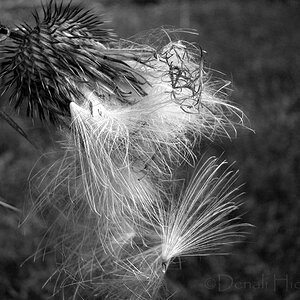
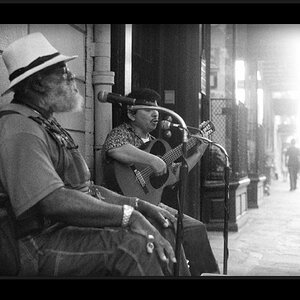

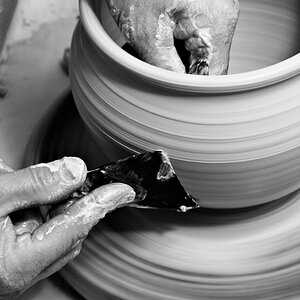


![[No title]](/data/xfmg/thumbnail/30/30864-50861ef77d7fa163bd5f5b5b8d661f5a.jpg?1619734483)
